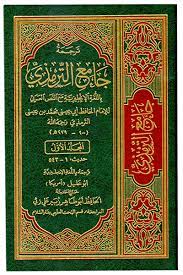امن کے لئے رسول اللہﷺ کےاِقدامات: جامع الترمذی کی كِتَابُ السِّيَرِکی روشنی میں ایک خصوصی مطالعہ
Keywords:
Peace, battles, Jihad, Tirmizi, Kitab-ul-SiarAbstract
This research delves into the depiction of the expeditions and battles (Ghazwat) of the Holy Prophet Muhammad (SAW) and his companions as discussed in the Hadith literature, specifically in the "Kitab-ul-Siar," a chapter dedicated to the details of military campaigns in various Hadith collections. One of the key sources for this study is Imam Tirmizi’s renowned work, Sunan Al-Tirmizi, where he elaborates on the strategies, laws, and provisions related to battles conducted by the Prophet Muhammad (SAW). The research aims to shed light on the peaceful measures and ethical guidelines followed by the Prophet during the course of these battles, offering a nuanced understanding of Jihad and war in Islam.
The study is organized into two primary sections: the first explores the concept of Jihad and its strategic application within Islamic teachings, emphasizing the balance between warfare and peace. The second section focuses on the peace measures adopted by the Prophet Muhammad (SAW) in the midst of conflict, demonstrating the humane and ethical principles that governed his military conduct. The research underscores that even in the context of warfare, the Prophet (SAW) emphasized restraint, compassion, and the protection of non-combatants, providing a model for ethical warfare in Islamic jurisprudence.The findings of the research reveal a profound understanding of the peaceful conduct during warfare in Islam, supported by the Hadiths from Kitab-ul-Siar. The study concludes with a summary of key points, results, and references that highlight the peaceful nature of Jihad in the Islamic tradition.
Downloads
References
الجوہری،ابو نصر اسماعیل بن حماد،الصحاح فی اللغۃ،ج۱،ص۳۴۲
العینی،بدر الدین الحنفی،عمدۃ القاری شرح صحیح البخاری،پبلیشر ندارد،اشاعت اپریل ۲۰۰۶ء،ج۲۱،ص۲۵۴
الکاسانی،علاء الدین ابو بکر بن مسعود،بدائع الصنائع فی ترتیب الشرائع،ناشر اور سن اشاعت ندارد،ج۱۵،ص۲۶۹
بدائع الصنائع فی ترتیب الشرائع،ج۱۵،ص۲۶۹
الترمذیؒ،محمد بن عیسیٰ بن سورہ،سنن الترمذی،باب ما جاء فی الدعوۃ قبل القتال ،بیروت:دار الکتب العربی،رقم الحدیث:۱۶۳۴
الشيبانی،ابو عبد اللہ احمد بن حنبل ،مسند احمد،قاہرہ:مؤسسۃ الرسالۃ،رقم الحديث :۲۱۰۵
البخاری،محمد بن اسماعیل،صحیح البخاری،کتاب بدء الوحی،رقم الحدیث:۲۹۴۲
سنن الترمذی،باب فی البیات والغارات ،رقم الحدیث:۱۵۵۰
مصدر سابق،رقم الحدیث:۱۵۵۱
سنن الترمذی،باب فی التحریق والتخریب،رقم الحدیث:۱۵۵۲
مصدر سابق،رقم الحدیث:۱۵۵۲
المبارکپوری،محمد عبد الرحمٰن بن عبد الرحیم،تخفۃ الاحوذی،ج۴،ص۲۳۴
السجستانیؒ،سلیمان بن اشعث،سنن ابی داؤد،باب فی قتل النساء،رقم الحدیث:۲۶۷۱
مسند احمد،رقم الحديث :۲۷۲۸
سنن الترمذی،باب فی کراھیۃ التفریق بین السبی،رقم الحدیث:۱۵۶۶
المبارکپوری ،تخفۃ الاحوذی،ج۳،ص۳۹۵
سنن الترمذی،باب ما جاء فی امان المرأۃ والعبد،رقم الحدیث:۱۵۷۵
سنن الترمذی،باب ما جاء في وصيته صلي الله عليه وسلم في القتال،رقم الحدیث:۱۶۱۷
سنن الترمذی،باب عن قتل النساء والصبيان،رقم الحدیث:۱۵۶۹
سنن الترمذی،باب فی البیات والغارات ،رقم الحدیث:۱۵۵۱
پالن پوری،مولانا سعید احمد،تخفۃ الالمعی،دیوبند:مکتبۃ حجاز ۰۰۸ء،ج۴،ص۴۸۸
المبارکپوری ،تخفۃ الاحوذی،ج۴،ص۲۰۸
سنن الترمذی،باب ما جاء فی الحلف ،رقم الحدیث:۱۵۸۵
• Al-Jawhari, A. N. I. B. H. (n.d.). Al-Sihah fi al-Lughah (Vol. 1, p. 342).
• Al-Ayni, B. D. H. (2006). Umdat al-Qari Sharh Sahih al-Bukhari (Vol. 21, p. 254).
• Al-Kasani, A. D. A. B. M. (n.d.). Bada’i’ al-Sana’i fi Tartib al-Shara’i (Vol. 15, p. 269).
• Al-Tirmidhi, M. B. I. S. (n.d.). Sunan al-Tirmidhi (Hadith no. 1634). Dar al-Kutub al-‘Arabiyyah.
• Al-Shaybani, A. B. A. (n.d.). Musnad Ahmad (Hadith no. 2105).
• Al-Bukhari, M. B. I. (n.d.). Sahih al-Bukhari (Hadith no. 2942). Kitab Bad' al-Wahy.
• Al-Tirmidhi, M. B. I. S. (n.d.). Sunan al-Tirmidhi (Hadith no. 1550).
• Al-Tirmidhi, M. B. I. S. (n.d.). Sunan al-Tirmidhi (Hadith no. 1551).
• Al-Tirmidhi, M. B. I. S. (n.d.). Sunan al-Tirmidhi (Hadith no. 1552).
• Al-Mubarakpuri, M. A. B. A. R. (n.d.). Tuhfat al-Ahwadhi (Vol. 4, p. 234).
• Al-Sijistani, S. B. A. (n.d.). Sunan Abi Dawood (Hadith no. 2671).
• Al-Shaybani, A. B. A. (n.d.). Musnad Ahmad (Hadith no. 2728).
• Al-Tirmidhi, M. B. I. S. (n.d.). Sunan al-Tirmidhi (Hadith no. 1566).
• Al-Mubarakpuri, M. A. B. A. R. (n.d.). Tuhfat al-Ahwadhi (Vol. 3, p. 395).
• Al-Tirmidhi, M. B. I. S. (n.d.). Sunan al-Tirmidhi (Hadith no. 1575).
• Al-Tirmidhi, M. B. I. S. (n.d.). Sunan al-Tirmidhi (Hadith no. 1617).
• Al-Tirmidhi, M. B. I. S. (n.d.). Sunan al-Tirmidhi (Hadith no. 1569).
• Al-Tirmidhi, M. B. I. S. (n.d.). Sunan al-Tirmidhi (Hadith no. 1551).
• Palanpuri, M. S. A. (n.d.). Tuhfat al-Alma’i (Vol. 4, p. 488). Maktabah Hijaz.
• Al-Mubarakpuri, M. A. B. A. R. (n.d.). Tuhfat al-Ahwadhi (Vol. 4, p. 208).
• Al-Tirmidhi, M. B. I. S. (n.d.). Sunan al-Tirmidhi (Hadith no. 1585).

Downloads
Published
Issue
Section
License

This work is licensed under a Creative Commons Attribution-NonCommercial-NoDerivatives 4.0 International License.
Authors retain the copyright of their work. All articles in Scholar Insight Journal are published under the terms of the Creative Commons Attribution 4.0 International License (CC BY 4.0).
This license permits anyone to read, download, copy, distribute, print, search, or link to the full texts of the articles, and to use them for any other lawful purpose, without asking prior permission from the author(s) or the publisher, provided proper attribution is given to the original work.




